Lappartient: Chris Froome's case unlikely to be resolved before Giro d'Italia
'Both sides have powerful lawyers, the case is more complicated than usual' says UCI president
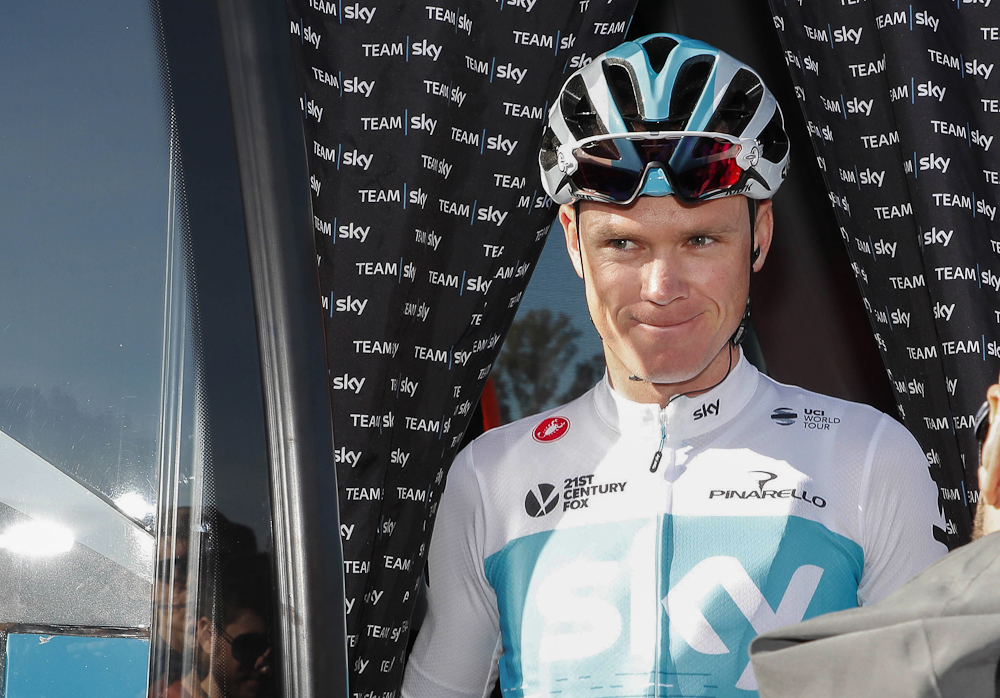
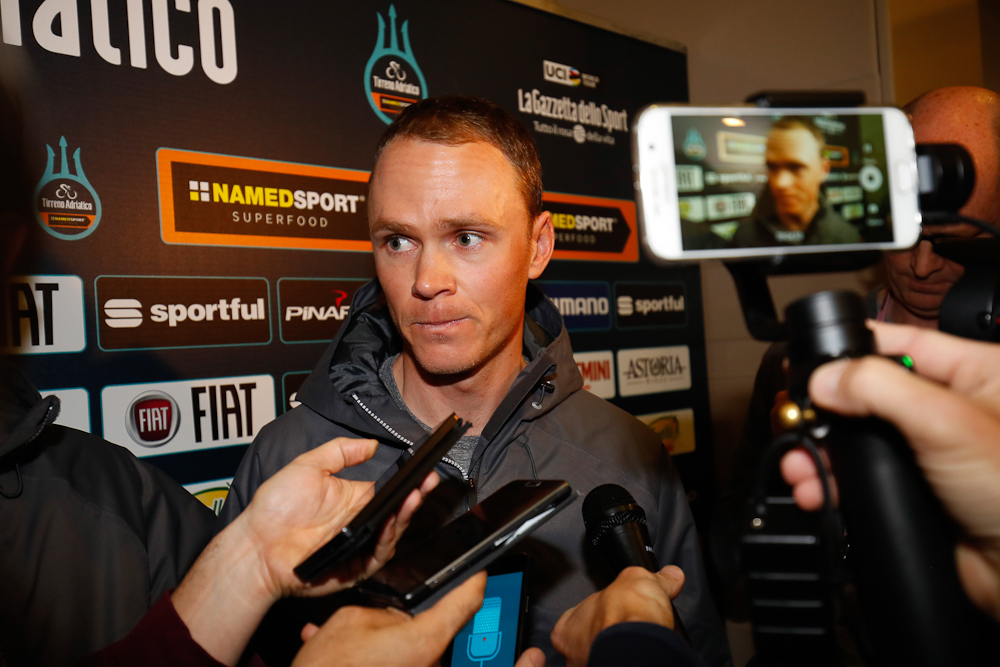
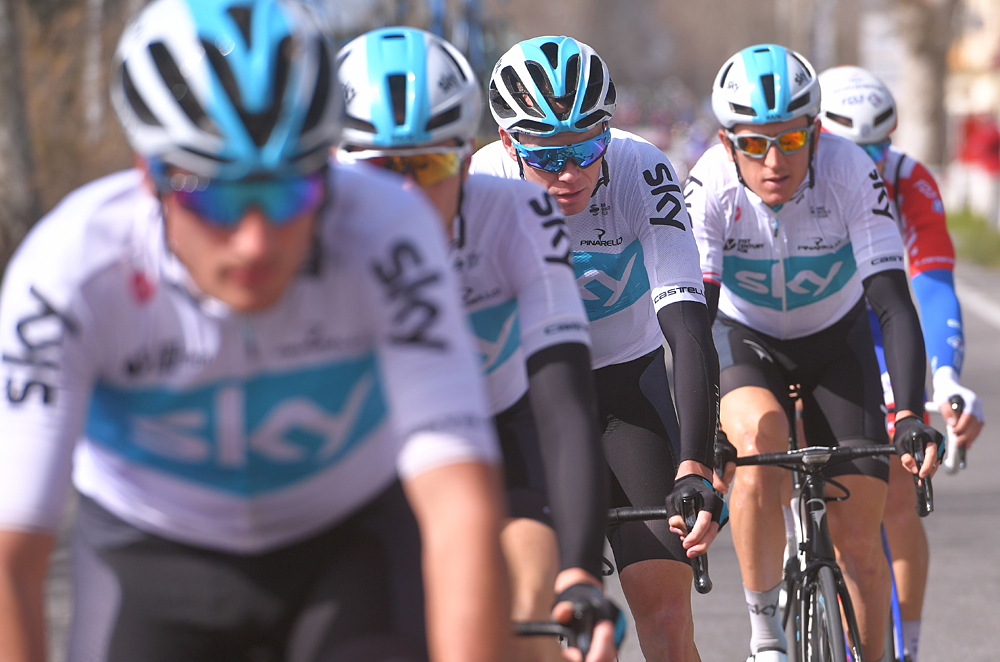
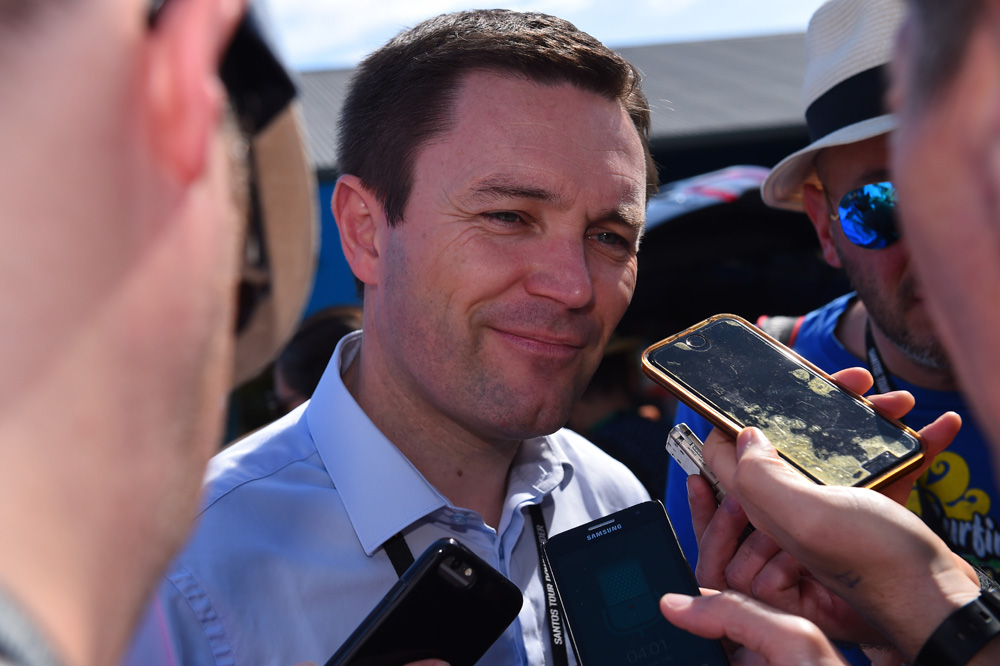
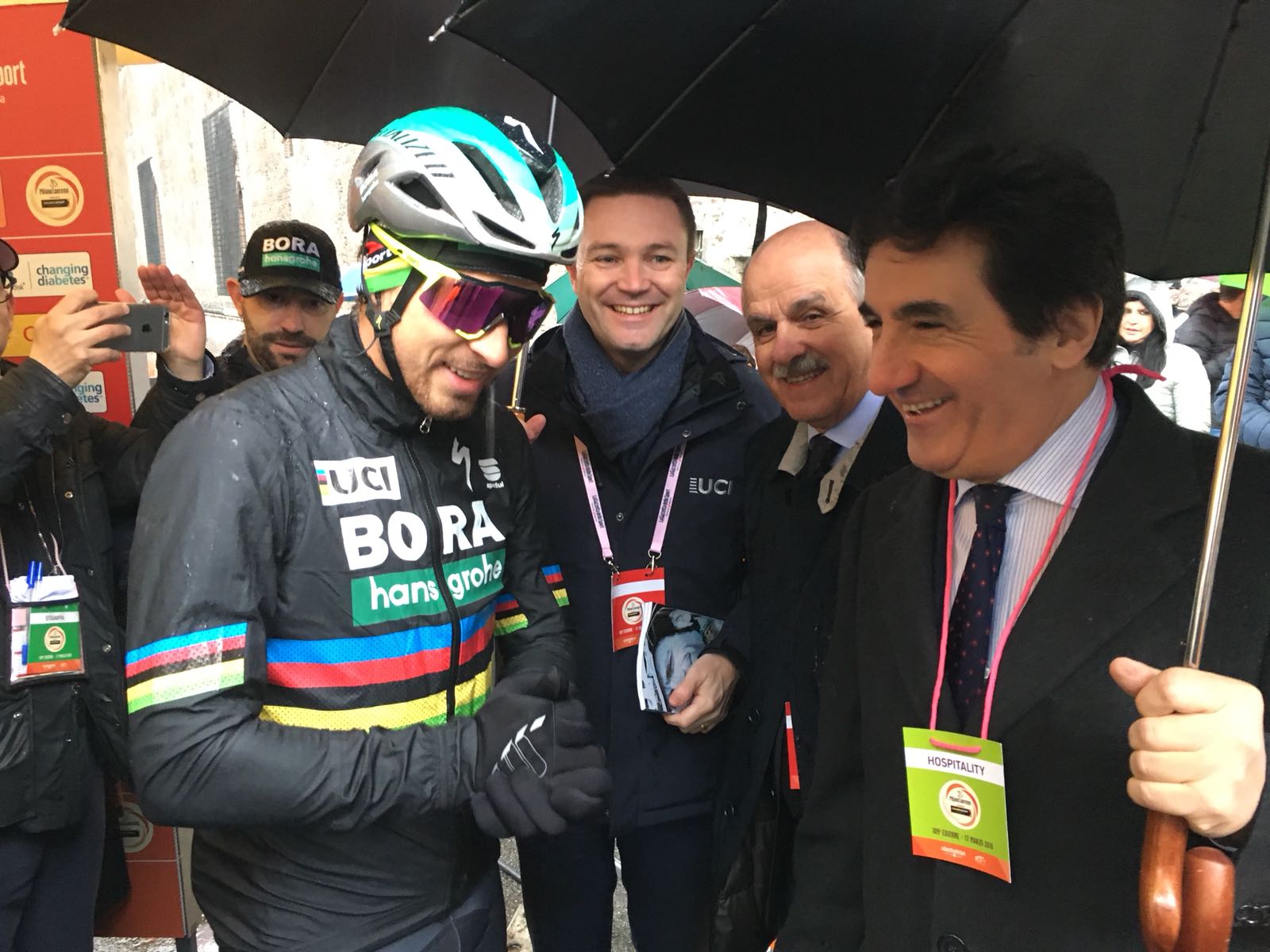
UCI President David Lappartient has admitted that the complex nature of Chris Froome's salbutamol case means a verdict is unlikely to be reached before the Giro d’Italia starts, meaning the Team Sky leader will almost certainly be in Israel for the start on May 4.
Chris Froome claims salbutamol case has been 'hyped up' in media
Lack of verdict in Chris Froome case is 'completely grotesque' says Prudhomme
Chris Froome firm in support of Brailsford
Tom Dumoulin: If I was Chris Froome I wouldn't be at Tirreno-Adriatico
Chris Froome: Lappartient should raise his concerns in person – not through the media
Froome returned a positive test for salbutamol en route to victory at last year's Vuelta a España, but as salbutamol is considered a specified substance, the Team Sky rider remains free to race pending the resolution of the case. Froome has always denied any wrongdoing, saying he respected medical guidelines for the use of his salbutamol asthma inhaler. He began his season at the Ruta del Sol and recently rode Tirreno-Adriatico, determined to push on with his plans to target the Giro d'Italia and Tour de France in 2018.
Lappartient has previously pressured Team Sky to suspend Froome from racing. He acknowledges that Froome has a right to race under UCI rules but suggested that his presence at the Tour de France before a final verdict "would be a disaster for the image of cycling".
The Frenchman attended Saturday's Milan-San Remo and admitted to La Gazzetta dello Sport that the complexity of the case could mean it will not be resolved in time for the start of the Giro d'Italia.
"When will it end? I don't know to be honest. I hope as soon as possible. I said I hope before the Giro d'Italia but I don't think so and I'm not sure that this is possible," La Gazzetta dello Sport quote Lappartient as saying.
"We're pushing for as soon as possible. And that'd be the best thing for the rider, the team, race organisers and the UCI. But it involves technical issues. It's not simple and needs time."
Froome's case has been on-going for over six months and was made public by the Guardian and Le Monde newspapers on December 13. However anti-doping rules do not limit the time scale of cases. Froome's status in the sport as a four-time Tour de France winner and his determination to fight his case despite potentially huge legal costs means every part of the case requires detailed consideration.
The latest race content, interviews, features, reviews and expert buying guides, direct to your inbox!
The UCI is still considering the case and Froome's legal team is still arguing his defence. The UCI could eventually decide to accept Froome's justification for why his salbutamol level was double the limit allowed or proceed with a formal alleged anti-doping rule violation via the UCI Anti-Doping Tribunal and push for a ban from competition.
"The procedure is long, questions have to be answered, documents have to be studied. Both sides have powerful lawyers and the case is far more complicated than usual," Lappartient said.
"I'm not authorised to say that much out of respect for the WADA code. The case is at the LADS (Legal Anti-Doping Services) and our lawyers and the rider's lawyers are in discussion."
However Lappartient confirmed that the UCI Anti-Doping Tribunal had been consulted but only on procedural matters.
Other riders, team managers and sponsors have vented their frustration regarding the time it is taking to move the Froome case forward, aware of the damage the uncertainty is creating to the sport and its future.
"I can understand that cycling fans want a decision but we’ve got precise procedures at the UCI and we've got to follow them of our sport to credible," Lappartient said.

